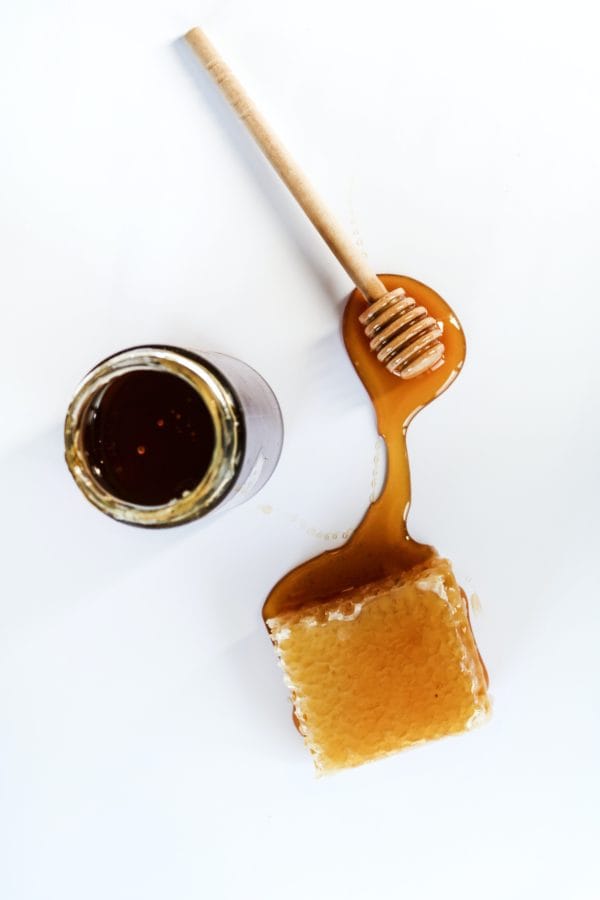Health
Here’s a sweet solution to your health problems, honey


There are records that show that people from ancient civilizations have used raw honey as a folk remedy. Nowadays, people believe that it has a variety of health benefits and medical uses. It’s even used in some hospitals as a treatment for wounds and some doctors have recommended honey as a way to alleviate a cough or sore throat.
But did you know that honey has so much more benefits? But first, a little background:
WHAT IS HONEY?
According to Senior dietitian Dana Hunnes of Ronald Reagan UCLA Medical Center, bees collect nectars from flowers and make honey out them.
“Bees collect the dilute-sugary nectar of flora plants, produce an enzymatic activity after ingestion, regurgitate it into honey cells and evaporate a high percentage of the water out of it, producing a super-sweet viscous liquid known as honey.”
Cool, right? It’s made out of simple sugars and water, and when we take it in, our bodies turn it into energy.
The type of flowers bees take nectar from greatly affect the taste, texture, and smell of honey—which is why there are so many types of honey out there
HOW HEALTHY IS HONEY?
There are many research that proves that honey has a lot of health benefits. Some of them show that honey alleviates the effects of coughs and improves gut microbial balance, among others.
According to dietitian Jenny Friedman, the nutrients in honey have “antibacterial, antioxidant, and anti-inflammatory properties.”
You may ask: Honey is also a sugar. And we all know that too much sugar is never a good thing because it can lead to weight gain and heart disease. So how is honey (and the type of sugar it contains) different from the bad stuff, refined sugar?
Well, honey has 40 percent fructose, 30% glucose, and the rest is made up of water, pollen, potassium, calcium, and magnesium. Refined sugar, on the other hand, is 50-50 fructose and glucose. Now you know what’s better for you, right?
WHY IS HONEY GOOD FOR YOU?
Honey has antioxidants.
Antioxidants are known for protecting or slowing down cell damage against “free radicals.” If this is what you’re after, we suggest going for darker honey because they have more antioxidants. To get the right amount of antioxidants from honey, you’ll have to consume more than two teaspoons a day, which is already a third of the daily recommended intake. For an even healthier option, most doctors recommend getting them from more varied sources like fruits and vegetables.
It can help with a bad hangover.
As mentioned, honey is largely made up of fructose, which quickens the oxidation of alcohol in the liver. But here’s the catch: studies have shown that for this to work, you’d have to use around two ounces of honey (that’s eight tablespoons) per 25 grams of alcohol. If those numbers sound confusing, that’s almost 500 calories.
It can heal burns and wounds.
This practice can be traced all the way back to ancient Egypt. Topical honey has been used to for healing partial-thickness burns and post-surgical infected wounds.
A review published in The Cochrane Library indicated that honey might be able to help heal burns. The lead author of the study said that “topical honey is cheaper than other interventions, notably oral antibiotics, which are often used and may have other deleterious side effects.”
Believe it or not, honey has also been effective in treating diabetic foot ulcers; in case you didn’t know, that’s pretty serious stuff ‘cause it could lead to amputation. Honey has also been found to treat skin conditions like psoriasis.
It has antibacterial and antifungal properties.
Research has shown that raw honey can kill unwanted bacteria and fungus because it naturally contains hydrogen peroxide, an antiseptic. Its effectiveness as an antibacterial or antifungal varies depending on the honey, but it’s clearly more than a folk remedy for these kinds of infections.
It helps alleviate digestive issues.
Honey is sometimes used to treat digestive issues such as diarrhea. According to research-based reviews on honey, it has been shown to decrease the severity and duration of diarrhea. Honey also promotes increased potassium and water intake, which is particularly helpful when experiencing diarrhea.
Research that took place in Lagos, Nigeria suggests that honey has also shown the ability to block the actions of pathogens that commonly cause diarrhea. It also have been proven to be effective as a treatment for Helicobacter pylori(H. pylori) bacteria, a common cause of stomach ulcers.
Also, honey is a potent prebiotic, meaning it nourishes the good bacteria that live in the intestines, which are crucial not only for digestion but overall health.
Preventing acid reflux
Recent research has shown that honey can reduce the upward flow of stomach acid and undigested food by lining the esophagus and stomach.
This has helped to reduce the risk of gastroesophageal reflux disease (GERD). GERD can cause inflammation, acid reflux, and heartburn.
Honey has a lot of benefits but you still have to keep in mind that anything in excess is never a good thing. Honey is still a form of sugar, so intake should be moderate.
A person’s overall eating pattern is still the most important element in preventing disease and achieving good health. It is better to eat a diet with variety than to concentrate on individual foods as the key to good health.


